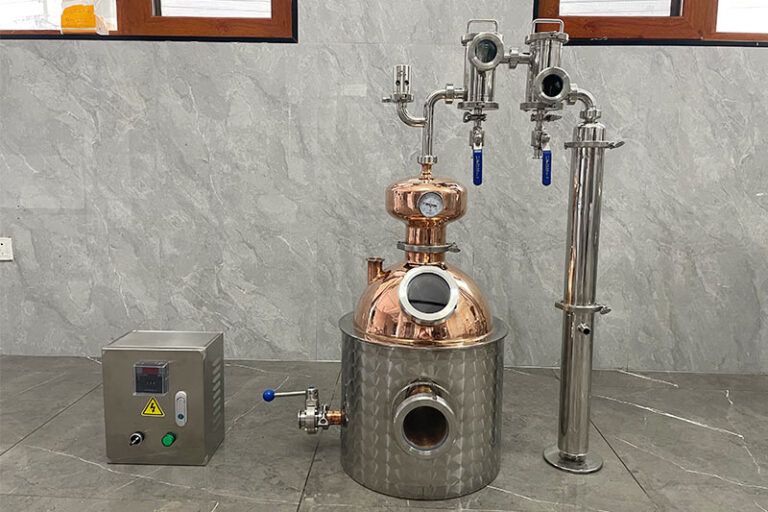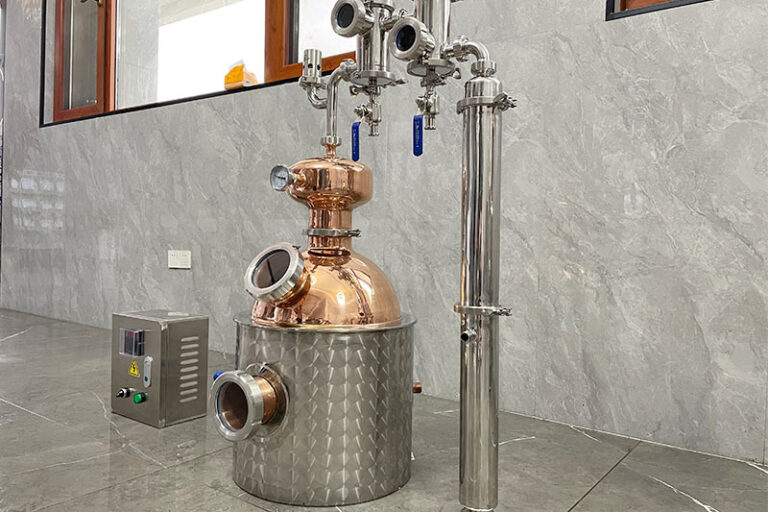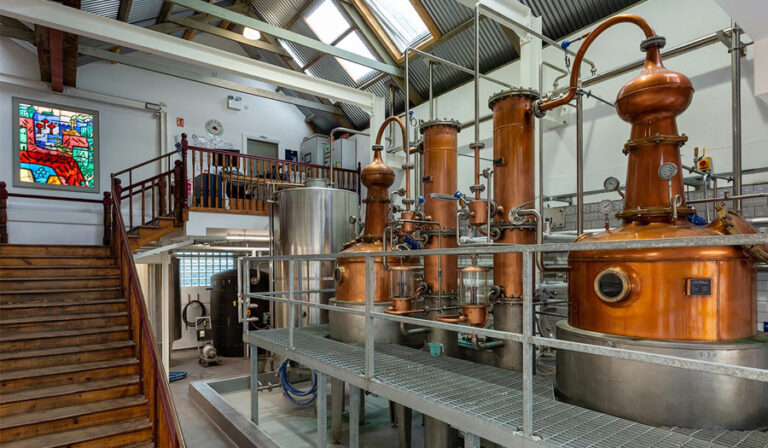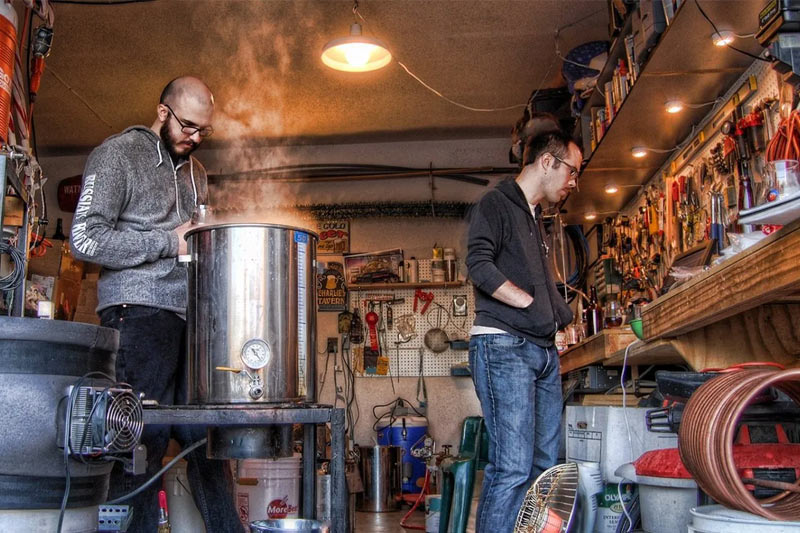Table of Contents

What is home distilling equipment?
Home distilling equipment refers to the tools and utensils used to brew spirits in a home environment. The main equipment includes a distiller (such as a boiler or column), a fermenter, a condenser, and a heating system. The distiller is responsible for separating the alcohol from the other components in the fermented liquid, and the condenser cools the vapor into a liquid. The fermenter is used to convert sugar into alcohol. Choosing the right equipment can help enthusiasts make unique homemade wines at home.
Features of home distilling equipment include:
- Miniature: The equipment is usually designed to be small, suitable for home use, and does not take up too much space.
- Easy to operate: Most equipment has a simple operating interface, which is suitable for beginners to get started quickly.
- Versatility: Some equipment can perform different types of distillation to meet diverse brewing needs.
- Easy to clean: Many home distilling equipment adopt an easy-to-disassemble design for easy cleaning and maintenance.
- Safety: Modern equipment is usually equipped with safety protection measures, such as pressure relief valves and temperature monitoring to ensure safe operation.
- Economical: Compared with industrial equipment, the price of home distilling equipment is relatively low, suitable for personal or small family use.
Home Brewing Equipment Supplies
Distiller
- Boiler distiller: suitable for small-scale production, simple structure, easy to operate. A boiler distiller usually consists of a heating tank, a steam channel, and a condenser.
- Column distiller: Column distiller is an ideal choice for home brewers who want to obtain higher purity alcohol. It achieves finer separation through multi-layer distillation towers and is suitable for large-scale home brewing.
Condenser

Fermentation tank
Collection container
Hydrometer
Cleaning equipment
Other auxiliary equipment
- Agitator: used to evenly mix the fermentation raw materials and promote the fermentation process.
- Funnel: Helps the liquid flow smoothly into the bottle when bottling to reduce overflow.
- Alcohol meter: used to measure the alcohol concentration of the final product and help with blending.
Important factors to consider when choosing home distilling equipment
- Capacity requirements: Choose the right capacity based on the needs of the family and the frequency of distillation. Small equipment is suitable for individuals or small parties, while larger equipment is suitable for families who brew frequently.
- Material selection: High-quality stainless steel and copper are ideal choices, which can withstand high temperatures and are not easy to corrode. The material will affect the flavor of the distillate. Copper can remove certain bad odors, while stainless steel is more durable.
- Ease of use: The equipment should be simple and easy to operate, especially for beginners, and avoid complicated installation and use steps. Check whether it comes with necessary accessories such as thermometers, condensers, etc. for easy operation.
- Cleaning and maintenance: Choose equipment that is easy to disassemble and clean. Keeping it hygienic can improve the quality of the final product. Equipment with high-quality materials is usually easier to maintain and has a long service life.
- Budget: Choose the right equipment according to your budget, and ensure that the selected equipment strikes a good balance between quality and price. Although equipment with a higher initial investment may be more economical for long-term use, it should be reasonably selected according to personal circumstances.

Conclusion
Mastering the correct use of home distillation equipment can effectively improve the quality and efficiency of distillation. When performing home distillation, be sure to follow local laws and regulations to ensure safety and compliance. At the same time, regular cleaning and maintenance of the equipment can extend its service life and ensure that each distillation can achieve ideal results.
FAQ
What basic equipment do you need for home distilling?
- Distiller
- Condenser
- Fermenter
- Thermometer
- Hydrometer
- Filter
- Bottler
Is home distilling legal?
In many places, home distilling is restricted or prohibited. Be sure to check local laws and regulations to ensure legal compliance.
What are the requirements for fermenter barrels?
Fermenter barrels should be made of food-grade materials such as glass or plastic. The capacity is usually between 5 and 10 gallons to ensure that they can withstand the pressure and temperature changes during the fermentation process.
Why is it important to clean distilling equipment?
Clean equipment can prevent contamination by foreign bacteria and ensure the purity and taste of the final product. Regular cleaning and maintenance of equipment can extend its life.
How to store the finished product after distillation?
Store in clean glass bottles or stainless steel containers in a cool and dry place away from direct sunlight to extend the shelf life.

